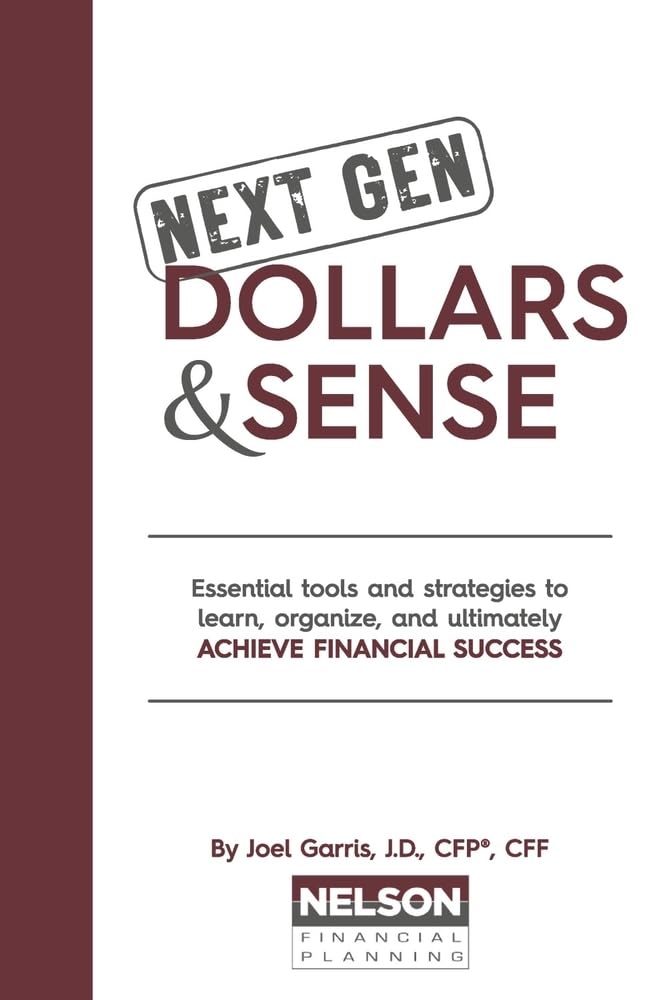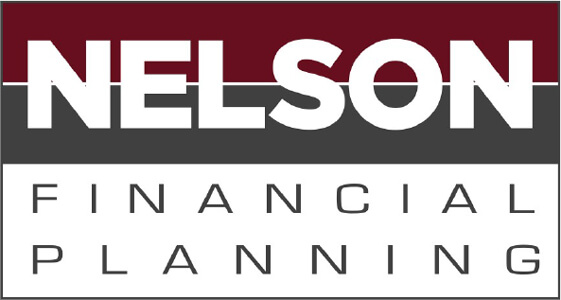5 Key Boxes to Check (Even If You’re Over 50)

Dreaming about retiring early? You’re not alone. Many people over 50 wonder if they can stop working sooner and finally start enjoying life on their own terms. But the truth is, leaving the workforce early takes more than wishful thinking. It requires strategy, discipline, and some honest self-reflection about your lifestyle, savings, and overall health.
In the Dollars & Sense podcast episode below, Joel Garris shares 5 essential “boxes to check” before anyone should seriously consider early retirement. “We thought it would be kind of neat to actually cover some boxes you can sort of work through and check to see if you can retire early,” says Joel.
Here we’ll break down those 5 boxes into clear, practical steps. Along the way, we’ll mix in real stories, expert insights, and some surprising statistics to help you decide whether you’re really ready to call it quits and retire.
Tip #1: Health is Wealth in Retirement
It might surprise you that the very first factor in early retirement has nothing to do with money – it’s your health.
“If you have health problems, then one or two things are going to happen. First of all, the cost of your health care and related expenses are going to be much higher . . . and, of course, if you’re not in good health, you’re probably not going to enjoy your retirement quite as much.” – Joel
In the video above, we examine the story of a couple who realized their health could make or break their retirement dreams. Both were in sedentary jobs, and over the years, they had gained significant weight. As retirement approached, they decided things had to change. Together, they lost 100 pounds, started eating better, and built an exercise routine.
Health care costs are one of the highest wildcards in retirement. According to Fidelity’s latest estimate, a 65 year-old couple retiring in 2023 can expect to spend around $315,000 on health care over their lifetime. Imagine what those costs look like if you retire at 60 – or 55. Those expenses can rise dramatically if you retire before Medicare eligibility.
Action items to prepare your health for retirement:
- schedule preventative screenings and annual check-ups
- build exercise and nutrition into your daily life
- price out health insurance options if retiring before Medicare
- factor premiums and out-of-pocket costs into your retirement budget
Tip #2: Factor in Family Dependence
The second box to check has to do with your household. Who still relies on you financially?
“If it’s one, you, and your spouse, two, and it doesn’t go to three or four or five, well then, okay that’s another important little box to check because the impact of having financially dependent dependents can be significant on your finances.” – Joel
In the episode, Joel looks at his own household. His eldest son had just moved back home after landing his dream job with the Orlando Magic’s G-League team. Joel was thrilled to have him home, but as he joked, “We’re sitting around watching football, and my son says, ‘Hey, we’re out of Coors Light.’ And I said, ‘How have you been getting your hands on Coors Light for the past six years?” It was a lighthearted moment, but it highlighted a real financial truth: when adult kids move back in, even temporarily, household costs rise – and retirement timelines can shift.
The numbers back it up. A survey revealed that 50% of parents with kids over 18 still provide financial support. That’s money that could otherwise go into savings or paying down debt. This is the first time we’ve reached this high of a percentage of older adults providing financially for their adult children. In fact, most of these parents spend on average about $1,474 a month, on things like cellphones, food, rent or insurance, on their adult children – reaching a three-year high.
Action items to prepare to eliminate unnecessary family dependence upon retirement:
- have an honest conversation with adult children about financial independent
- establish boundaries for what expenses you will (and won’t) cover
- create a plan for gradually reducing support
- avoid co-signing loans that could put your retirement at risk
Tip #3: Raise Your Savings Rate Above the Average
Your savings rate might be the single most important indicator of whether early retirement is realistic. The national average savings rate as of May 2025 was only 4.5% – far too low to support retiring before 65.
To put it bluntly:
“The reality is that this is a key factor in determining whether you can retiree early is your own individual savings rate. If you’re saving at a low rate because you’ve got too many expenses, that’s going to impact your ability to retire.” – Joel
At Nelson Financial Planning, there are no account minimums because everyone needs to start somewhere. “That is so crucial,” Joel explains, “to just get started with some level of savings and then gradually increase that savings rate over time.”
Action items to get your savings rate above average:
- target saving 15-20% of your income if retiring early is the goal
- max out tax-advantaged accounts like 401(k)s, IRAs, and HSAs
- automate contributions so saving becomes automatic
- cut non-essential expenses and redirect that money into savings
- use catch-up contributions once you turn 50
Tip #4: Build Multiple Income Buckets (and Keep Them Tax-Efficient)
Having one source of income is retirement risky.
“You’ve got to have a variety of sort of buckets in which to generate income. The more you have, the better off you’re going to be, and the earlier, in fact, you can retire.” – Joel
Your “buckets” might include:
- tax-deferred accounts (401(k), traditional IRA)
- tax-free accounts (Roth IRA)
- taxable brokerage accounts
- real estate income
- social security (later on)
Many clients come into Nelson Financial Planning thinking about these accounts in isolation, but the real power comes from combining them strategically. The order in which you withdraw money can make the difference between outliving your nest egg or stretching it further.
That’s why Nelson Financial Planning offers specialized tax planning and preparation services to help clients align withdrawals with tax efficiency. A well-crafted strategy keeps more money in your pocket and less in Uncle Sam’s.
Action items to build multiple income buckets:
- map out a withdrawal order across your accounts
- explore Roth conversions to reduce future tax liabilities
- diversify beyond retirement accounts (real estate, taxable brokerage)
- run tax simulations to anticipate how withdrawals will impact your long-term plan
Get more resources on the IRS retirement planning page or contact the team at Nelson Financial Planning to schedule a free portfolio analysis and conversation.
Tip #5: Eliminate Debt Before You Retire
Finally, debt is the silent retirement killer.
“Obviously, if you don’t have debt, that makes you more likely to be able to retire early. And that one is pretty crucial.” – Joel
Carrying debt into retirement doesn’t just drain your bank account – it keeps you tied to monthly obligations that restrict your freedom. Every payment you make toward a mortgage, credit card, or loan in retirement is money that isn’t available for travel, hobbies, or healthcare. That’s why this “box” is so important to check before you even think about retiring early.
Joel highlighted that Nelson Financial Planning’s upcoming workbook goes beyond broad advice and provides exercises designed to help clients directly compare mortgage options and evaluate which payoff strategies make sense for their unique situation. The goal isn’t just paying debt off faster, but also understanding how different repayment schedules impact long-term retirement cash flow.
This approach recognizes that not all debt is equal. For instance:
- High-interest debt (like credit cards) is toxic and should be eliminated as quickly as possible
- Car loans can strain budgets but may be manageable if close to payoff
- Mortgages are trickier. Some retirees keep them if interest rates are low and they’ve structured other investments to grow at higher rates. Others prefer the peace of mind of entering retirement with a paid-off home.
Joel’s point was clear: whatever your approach, you must understand the trade-offs. Debt isn’t just a number on paper – it represents reduced flexibility and increased risk if unexpected expenses arise in retirement.
The data underscores this concern. The Federal Reserve reports that Americans over 55 now hold nearly $5 trillion in debt, with mortgages making up the largest share. In fact, Americans across generations are carrying more debt compared to three decades ago, but the rise has been the steepest among the oldest age groups. Debt more than quadrupled in households headed by people aged 65 to 74 (comparing 1992 to 2022). That kind of burden can quickly derail even the best-laid retirement plan.
Action items to eliminate debt before retirement:
- create a full debt inventory (mortgage, auto, credit cards, personal loans)
- prioritize paying off high-interest credit cards first
- use a snowball (smallest balance first) or avalanche (highest interest first) method to accelerate progress
- run scenarios: what does retirement look like with vs without a mortgage
- build debt payoff into your retirement timeline – don’t leave it for later
Eliminating debt isn’t just about numbers; it’s about freedom. Imagine entering retirement with no bills beyond your utilities, groceries, and healthcare. That’s when early retirement becomes more than a dream – it becomes a reality.
Bonus Resource: Avoiding the Biggest Mistake in Retirement
Most people obsess over retirement planning – saving, investing, watching the balance grow. The real gap we see, though, is a lack of retirement income planning: the day-to-day strategy for where your money will come from, when to take it, and how to keep taxes and inflation from quietly eroding it.
What you’ll Learn in the video above:
Retirement planning vs retirement income planning
Planning = your balance sheet (what you own vs owe).
Income planning = your “profit & loss” – what comes in each month, what goes out, and what’s left after taxes and inflation.
Social Security: the surprise tax trap
For many households, Social Security is taxable based on other income. Joel walks through why more retirees are paying tax on benefits and why your filing strategy matters.
Taxes drive income
Know your “asset tax map”: pretax (401(k)/traditional IRA), tax-free (Roth), and taxable (brokerage). Dividends/long-term gains can be taxed at lower rates than ordinary income – coordinate withdrawals to keep more of what you make.
Inflation isn’t abstract
At approximately 3% long-run inflation, a $10 item becomes $15 in about 12 years. Translation: you still need growth; going too heavy into bonds can leave your income lagging your costs.
3 Takeaways You Can Use Today
- Decide your income order of operations: list all accounts (401(k)/IRA, Roth, HSA, brokerage) and draft a withdrawal sequence that balances taxes now vs later.
- Stress-test Social Security. Model a few filing ages and see how each changes your taxable income and required withdrawals.
- Inflation-proof the mix. Keep a sensible slice of growth assets so your income can rise over a multi-decade retirement.
Watch the video above to learn how to turn a pile of savings into a resilient paycheck in retirement.
Why it matters: retirement income planning is where you have the most control. Getting Social Security timing, account sequencing, and tax planning right can add years of longevity to your portfolio – and peace of mind to your life.
Final Thoughts
Retiring early is an appealing idea – but it’s not for everyone. Health, family obligations, savings habits, income diversity, and debt all play a role in whether early retirement is realistic for you.
If you’re ready to see how your own situation stacks up, Nelson Financial Planning in Orlando, FL offers comprehensive retirement planning and specialized tax planning and preparation strategies that can help you answer the big question: Am I ready to retire?
Start building your path to financial independence with Nelson Financial Planning.

When you’re ready to take these strategies further, Nelson Financial Planning offers a free in-office consultation – plus a complimentary copy of our newest book NextGen Dollars & Sense.
ABOUT THE AUTHOR
Joel J. Garris, JD, CFP®, is the President and CEO of Nelson Financial Planning and the voice behind the Dollars & Sense podcast. A seasoned financial advisor with over 20 years of experience, Joel helps everyday investors make sense of complex markets with clarity and confidence. When he’s not simplifying retirement strategies or decoding economic trends, he’s probably on air delivering straight-talk financial advice – no fluff, just facts.

- 8 Wonders1
- Bank Investments3
- Beating Inflation1
- Budget for Retirement5
- Corporate Transparency Act2
- Digital Currency1
- Energy Tax Credits1
- ESG Funds1
- Featured Blog0
- Financial Planning13
- Financial Success4
- Importance of Dividends2
- Investment Portfolio5
- Investment Strategy3
- IRA1
- Joel Garris1
- Nelson Financial Planning5
- Net Worth Improvement1
- Next Gen Dollars and Sense1
- One Big Beautiful Bill Act (OBBBA)1
- Pension Plans1
- Podcast Transcripts5
- Retirement “Secure” Act2
- Retirement Income Planning3
- Retirement Planning7
- Retirement Regrets5
- Social Security4
- Tax Liability3
- Tax Planning7
- Year-End Tax Changes3






